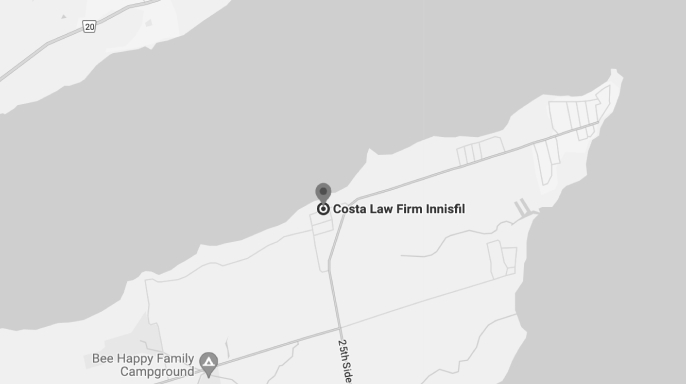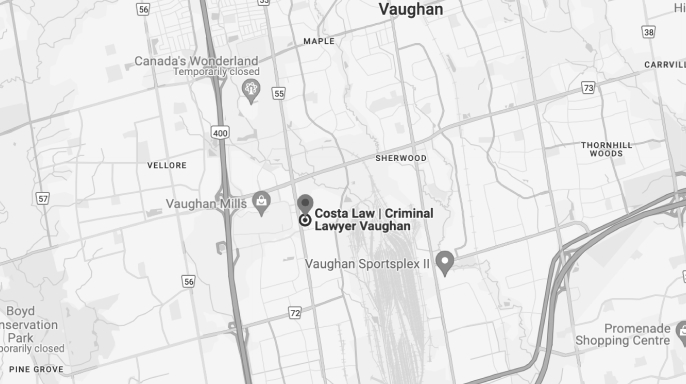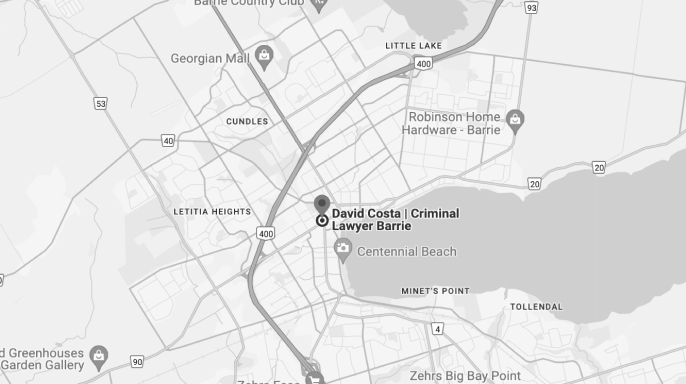What Is the Maximum Penalty for Uttering Threats in Canada?
Uttering threats is when statements are made that express the intent to cause physical harm or death to a person, damage a person’s property, or injure their animal or bird. In Canadian law, there are serious legal consequences for uttering threats. Prosecuting an individual for such a charge does not necessarily require a large amount of evidence. These cases often fall upon the judge and whether they believe a complainant’s allegations and whether it can be proven, to some extent, that the accused was intentionally making a threat.
A skilled criminal defence lawyer is a must if you are going to defend yourself in an uttering threats case.
Types of Uttering Threats
To be the accused on the end of uttering threats charges, a threat does not need to have actual words spoken or be uttered verbally. An alleged threat can be conveyed through writing, posted on social media, sent by text, or found in other forms of online content. In this context, if it causes fear or harm and targets individuals or groups, and the accused intended a statement to be threatening, the legal criteria is predominantly met for a comment or statement to be defined as a threat.
Even a gesture – such as a throat-slashing gesture – can be construed as uttering a threat and a person can be charged.
Under Section 264 of the Criminal Code, uttering threats is divided into three categories: threats to cause bodily harm, threats to damage personal property, and threats to a person’s animal. By far, the most common of the two are threats to cause death or bodily harm and threats to damage property.
Threats to Cause Death or Bodily Harm
The most serious uttering threats charges are those that involve a reference to death or bodily harm. They imply a person’s safety and well-being is endangered.
If a threat is issued with an intent to cause fear or coerce someone into doing something against their consent, this aggravates the potential penalties in a major way.
If something has been said in jest, these are not threats by Canadian law. This will not stop you from being charged, however, and having to defend yourself in court.
In some cases, you may not even be fully aware you made a threat like this. It could come in the heat of a moment when you’re engaged in an argument with someone. This is often true as the majority of these cases are between friends, spouses, professional acquaintances, or similar relationships.
Threats to Damage Property
The less serious criminal offence is a threat to damage property. Legal consequences for this type of threat can differ depending on the value of the property, whether it belongs to an individual or business, and the details of what the threat was and how it was made.
Threats against property can include damage, destruction, or vandalism of any personal or public property.
While this is not as serious as the threat to cause death or bodily harm, a threat to damage property is still considered a threat and is punished under the law as such.
Punishment for Uttering Threats
Uttering threats is a serious criminal charge in Canada. Even if it is your first offence, such a charge can lead to jail time. What the maximum penalty is will rely on the individual circumstances of your case, whether the Crown is moving forward summarily or by indictment, and if aggravating factors are present.
Due to the seriousness of the charges and to avoid having to face the maximum penalty, connect with a lawyer as soon as you are aware charges are being brought forth. A skilled uttering threats lawyer can offer an individualized defence plan, assisting in negotiations, and will do what they can to resolve the possibility of punishment before the case goes to court.
Maximum Penalty
The maximum penalty for an uttering threats charge is split into summary and indictment.
- With a summary conviction, it could mean up to 2 years less a day in jail and/or a $5,000 fine.
- If it is deemed an indictable offence, it is up to 2 years in fail if it was a threat to damage real or personal property. If you uttered threats to cause death or bodily harm, it is up to 5 years in jail.
A summary offence is interpreted as less serious. They are often handled in provincial courts and they result in quicker trials. They are used when the threat is a minor or the defendant has no prior record. Comparatively, indictable offences are more serious and often use a more formal trial process.
Aggravating Factors
There are over a dozen aggravating factors that may make an uttering threats charge more serious.
- If the threat was made against a child, elderly person, mentally disabled person, or similarly accepted vulnerable person.
- If the accused was under the influence of alcohol or drugs when the threat was made.
- If the threat involved extortion or a similar crime.
- If the threat was particularly specific or alarming.
- If the threat is made during a domestic dispute with a spouse, domestic partner, or romantic partner.
- If the accused has a prior record of uttering threats or has a criminal record involving a conviction of violence.
- If the accused had a weapon on them at the time the threat was made, even if they are legally allowed to own and carry said weapon.
- If the threat was made against a public official.
Sentencing and Consequences
Uttering threats is considered a hybrid offence under the Criminal Code. Depending on the unique circumstances of a case, the Crown can either choose to proceed by indictment or summarily – as already mentioned.
In most cases, the consequences of an uttering threats charge are widespread. It could involve being placed on bail and being required to follow release conditions, interfere with citizenship or immigration applications, and affect future plans to travel outside the country.
On a personal level, you may also experience a decline in social standing, be thought of differently by your job and family, and there’s the expense of having to hire legal counsel to mount your defence.
Sentencing Profile
First-time offenders found guilty of uttering threats charges will typically receive lighter sentences though this depends highly on the nature of the case. A first-time offender may receive a shorter prison sentence than the maximum in addition to a conditional discharge, probation, or community service.
A repeat offender – such as someone who has made violent threats in the past or someone with a criminal record – is likely to face far more severe sentencing.
Each case is evaluated based on its unique details, including the severity and context of the threat.
Record Suspensions and Pardons
A record suspension – or what is sometimes referred to as a pardon – may be available to you after a set period after a convicted individual has completed their sentence and gone through the steps for rehabilitation.
With a summary conviction offence, an individual can apply for a record suspension five years after their sentence is completed.
For an indictable offence, one must wait ten years after their sentence is over.
What a record suspension, or pardon, does is remove the criminal record from public access. This provides a convicted individual the opportunity to move on from the offence and put it behind them.
Conclusion
The maximum penalty for uttering threats in Canada, needless to say, is severe. It is considered a serious crime. A person does not need to have followed through with any action or be planning to in order to be facing uttering threats charges.
If you are being charged with uttering threats, speak to a criminal lawyer with the experience to ensure you receive the most favourable result from a proceeding case.
As your legal counsel, we will mount a strong and valid defence strategy that protects your rights from the moment you hire us. As a part of your defence, we may argue that a reasonable person would not have perceived the utterance as a threat, that there was a lack of intent, ambiguous language, install doubt about the credibility of the complainant, and/or use any applicable Charter defences.
Reach out for legal guidance from an experienced criminal lawyer you can trust to handle the charge against you.
CAUTIONARY WARNING: these writings are intended by Costa Law Firm Professional Corporation to serve strictly for promotional purposes and are not to be considered to be legal advice to the reader’s particular situation – ALWAYS actively consult directly and exchange particular information with a licensed lawyer or paralegal as appropriate in the circumstances.
David Costa
Dir.(416)788-6329





